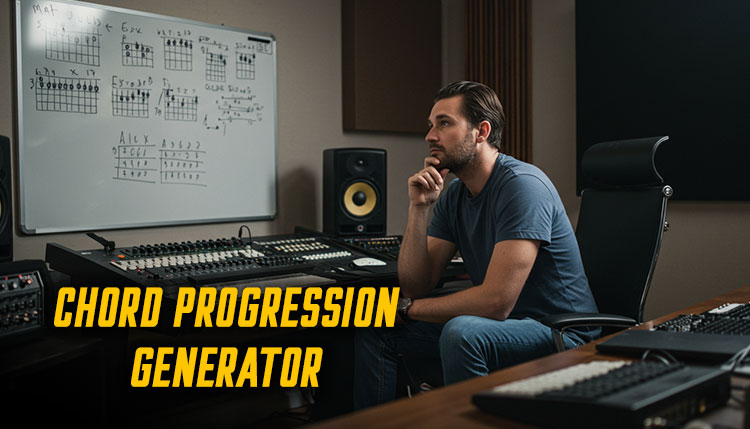Spotify is a popular music streaming platform that enables users to listen to an extensive catalog of songs and albums on demand. In 2022, Spotify launched a personalized feature called Favorite Music Guru to provide customized music recommendations and guidance tailored to each listener’s music taste.
How to Use Favorite Music Guru for Spotify
Favorite Music Guru on Spotify uses advanced machine learning algorithms related to your listening habits and favorite artists and songs. Based on the musical preferences it identifies, Favorite Music Guru works by selecting expertly curated playlists across various genres to follow for the music lover.
It essentially serves as a personal musical advisor suggesting top artists and tracks based on the individual’s favorite musical styles and listening habits on Spotify. The more people listen to music on Spotify, the better Favorite Music Guru gets at precisely targeting suggestions and music based on your listening habits.
Tool to Find Artists
This results in a much more personalized way to discover new music and build your music library. Beyond Discover Weekly, Favorite Music Guru specializes picks in the sweet spots a specific listener leans into most. This allows audiences to branch out within their core taste profiles and help you discover new music.
The feature also provides description and context for its recommendations. Favorite Music Guru is a tool that tells you why certain playlists fit your taste profile and what newer artists you may enjoy based on your favorites. In a way, it tries to emulate the guidance of having your own devoted music expert.
Over time, Spotify users can end up with a highly tailored group of playlists curated to map to their listening DNA based on direct feedback from their selection history. So Favorite Music Guru actually lives up to its name in delivering an expert-level music matchmaking service for your Spotify account.

Who is Considered a Music Guru?
A “music guru” refers to someone who is an expert in music and often provides guidance, insights, critiques, or teachings related to music. Generally, a music has extensive knowledge and experience with different genres, artists, techniques and elements that make music impactful.
Traits of a Music Guru
Some common traits of a music expert include:
- Deep understanding of music theory, composition, arrangement, production values, songwriting, etc.
- Knowledge of diverse musical styles and a keen ear for quality
- Adept at analyzing what makes a song, album or artist compelling
- Passionate about music’s cultural impact and artistic merit
- Natural ability to discover talented artists before widespread fame
- Skilled at predicting future music trends and sounds
- Talent for critiquing music in a constructive manner
- Articulate and influential opinions on the music industry
Examples of Music Gurus
Some personalities considered music authorities include:
- Quincy Jones – Legendary producer, composer and music executive
- Rick Rubin – Prolific record producer known for diverse portfolio
- Dre – Rapper and top hip-hop producer who helped launch careers
- Berry Gordy – Founder of Motown Records and architect of its signature sound
- David Bowie – Highly influential singer-songwriter and genre pioneer
- Bon Iver – Indie folk artist Justin Vernon known for studio experimentation
- Brian Eno – Producer who pioneered ambient music and innovative recording techniques
- Trent Reznor – Creative force behind Nine Inch Nails’ genre-bending industrial rock

What Makes a Music Guru Stand Out?
There are many highly knowledgeable people when it comes to music, but only some distinguished few are regarded as true experts. So what traits elevate one to music guru status?
Vision to Recognize Talent and Trends Early
A key characteristic of a music sage is the ability to discover new talent and identify up-and-coming trends well before the mainstream. They possess a visionary quality for spotting artists and sounds that may soon resonate widely. Their pulse on what’s happening at music’s cutting edge gives them incredible influence.
Musical Prowess and Technical Mastery
In addition to having an attentive ear, music leaders tend to be technically skilled in some area of the craft – whether it’s instrumentation, songwriting, production, technology or business. They have a mastery that grants them further credibility. Quincy Jones plays numerous instruments. Rick Rubin and Dr. Dre are wizardly on the soundboard. Berry Gordy excelled as an entrepreneur.
Distinct Musical Voice and Perspective
What further elevates music gurus is that they bring a distinct perspective – an ability to critique and celebrate music in a way that’s uniquely their own. From David Bowie’s artistic fearlessness to Bon Iver’srich sonic textures to Trent Reznor’s unflinching intensity, these masters capture our imagination while shaping future sounds.
Evaluating Your Favorite Music Guru
When considering your personal music expert, assessing criteria like the below can determine if they indeed provide that kind of authoritative guidance:
What is Their Musical Range and Depth?
Do they display a vast musical fluency across multiple eras and genres? Are they equally versed in emerging subgenres as iconic standards? The best authorities have both width – the scope of music they know – and depth regarding any given style. Frequency of predictive or early observations adds further credibility.
What Access and Vantage Do They Possess?
Does your favorite music expert have access that offers a unique vantage? For instance, legendary artists or executives interacting routinely with gifted creators. Super-producers shaping hit records daily. Directors of music-centric events that attract diverse talent. Their special exposure enables elevated opinion.
How Adaptable is Their Musical Discernment?
Fixed tastes over time can dull one’s guru abilities. The greats stay in tune with music’s changes and let their discernment evolve. Relative importance of innovation, lyrics, instrumentation and production shift. Miami club trends, New York rap and Nashville country take turns as creative centers. An adaptable ear keeps gurus current.
What is Their Communication Style and Impact?
Music gurus often produce their own soundbytes. Quincy Jones’ humor and irreverence. Rick Rubin’s understated look matching enigmatic quotes. Bon Iver mixing Midwestern modesty with high-concept descriptions. And their unique takes can influence public dialogue. Watch what other critics or fans say after they speak.
Becoming Your Own Favorite Music Guru
Ultimately, the various musical guides we admire most reflect our personal tastes. But with some diligent listening, study and passion, you can become your own music guru.
Immerse Yourself Across All Music Worlds
Voraciously take in albums, concerts, music blogs and podcasts. Follow creators themselves on social media. Track freshly posted songs. Crate dig vintage vinyl. Attend local showcases when traveling. Absorb the music universe until patterns emerge.
Go Deep on Favorite Genres and Eras
Complement that wide exposure by specializing. Which 2-3 styles most captivate you? Become a walking almanac – pioneers, subgenres, fun facts, turning points. Same for any decades that intrigue you. That deep context separates the lifelong fans from true experts.
Train Your Ear by Analyzing and Comparing
Hone your evaluation skills. When listening, dissect which elements stand out and why. How do trademarks of certain genres or artists reveal themselves? Compare similar works – songs off the same album, releases from consecutive years, proteges to mentors. Sharpening these instincts is key.
Over time, you realize knowledge plus informed opinions – conveyed in a way only you can – is what makes any favorite music guru impactful. And soon colleagues, friends or music subscribers eagerly await your next thoughtful critique.








